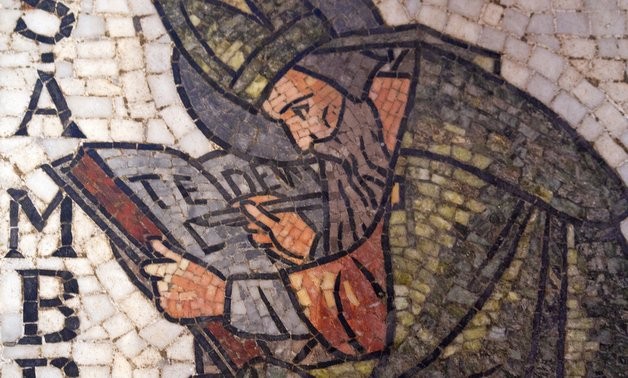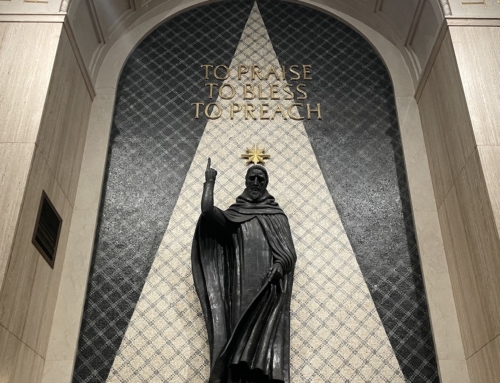At New Year’s Eve, as we finish one year and enter another one, the time is right to reflect on the people and things that have shaped our lives in the past year. We see this in the annual year-end media blitz: television programs run clip shows featuring the best of the year; radio stations count down the most popular songs of the last twelve months; and newspapers recall the lives of those who died and the events that changed the world in this interval of time that quickly comes to an end.
Such reflection on the past year provides an opportunity for prayer, as we contemplate on how God’s providence has come into action. In addition to His bringing us safely through another circuit of the earth around the sun, we can thank God for all the benefits and gifts we have received from Him, for all the times that left an indelible impression on our memory, and for His guidance through all our trials and difficult moments of the year.
For example, on a personal level, I have a lot for which to be thankful to God this year: offering my life to Him in solemn profession in the Order of Preachers; becoming an uncle and godfather for the first time; and for the many people God has put into my life, both those whom I have helped bring closer to Him in some way and those who have done acts of kindness to me. Even watching my favorite football team overcome injuries to win a conference championship is an occasion to thank God. Communally at the Dominican House of Studies, we have several milestones for which to be grateful, from brothers’ ordinations and new brothers’ arrivals to recording our second album and reaching our millionth hit on this blog. In recalling God’s many gifts, we may wonder: how can we offer fitting thanks in return?
For centuries, the Church has had the custom of singing a hymn of thanks and praise, the Te Deum, at major events. In addition to being part of the Liturgy of the Hours for Sundays and feast days, including every day this week during the Octave of Christmas, this hymn is sung at papal installations and episcopal consecrations; we sang it here at the House of Studies this year upon the election of our new prior. According to legend, the great hymnographer St. Ambrose composed it when he baptized his most famous convert, St. Augustine. But while some liturgical books call it the Hymnus Sanctorum Ambrosii et Augustini (the Hymn of Saints Ambrose and Augustine), it was most likely written by another fourth-century bishop, Nicetas of Remisiana.
In this hymn, we on earth join in the praise of God by all the ranks of heaven: “To you all angels, all the powers of heaven, Cherubim and Seraphim sing in endless praise;” and we recall the life and events of Jesus Christ, the divine Son, who “overcame the sting of death and opened the kingdom of heaven to all believers.” Even those unfamiliar with the original Latin hymn or its literal English translation may recognize a poetic translation, such as “God, We Praise You” or “Holy God, We Praise Thy Name.”
Moreover, on this last day of the year, the Church grants a plenary indulgence for praying the Te Deum in public, and some places have taken up this custom. My home parish, for example, features the hymn after an hour of Eucharistic adoration and before a Mass at midnight. What better way could there be to make the transition from one year to the next than to spend time in prayer, thanking God for the gifts and blessings of the past year and starting a new one free from the punishment of sin, with the hope that the newborn Savior provides?
Truly, it is fitting therefore that the year turns over during Christmas time, as the Te Deum proclaims: “When you became man to set us free, you did not spurn the Virgin’s womb.” This “marvelous exchange” (admirabile commercium)—as the Church’s liturgy prays this evening, in which God the Son took on our human nature to the fullest, even having a human birth from His virgin mother Mary, in order that we may share in His divinity—is definitely a cause for celebration and praise. As we review and reflect on the many gifts that God has given each of us this past year, let us also ponder the greatest gift—the birth of the Son that makes friendship with God possible—and give God thanks and praise, asking Him, as the hymn concludes, to “bring us with Your saints to glory everlasting.”
✠
Image: Fr. Lawrence Lew, O.P., St. Ambrose Writing







